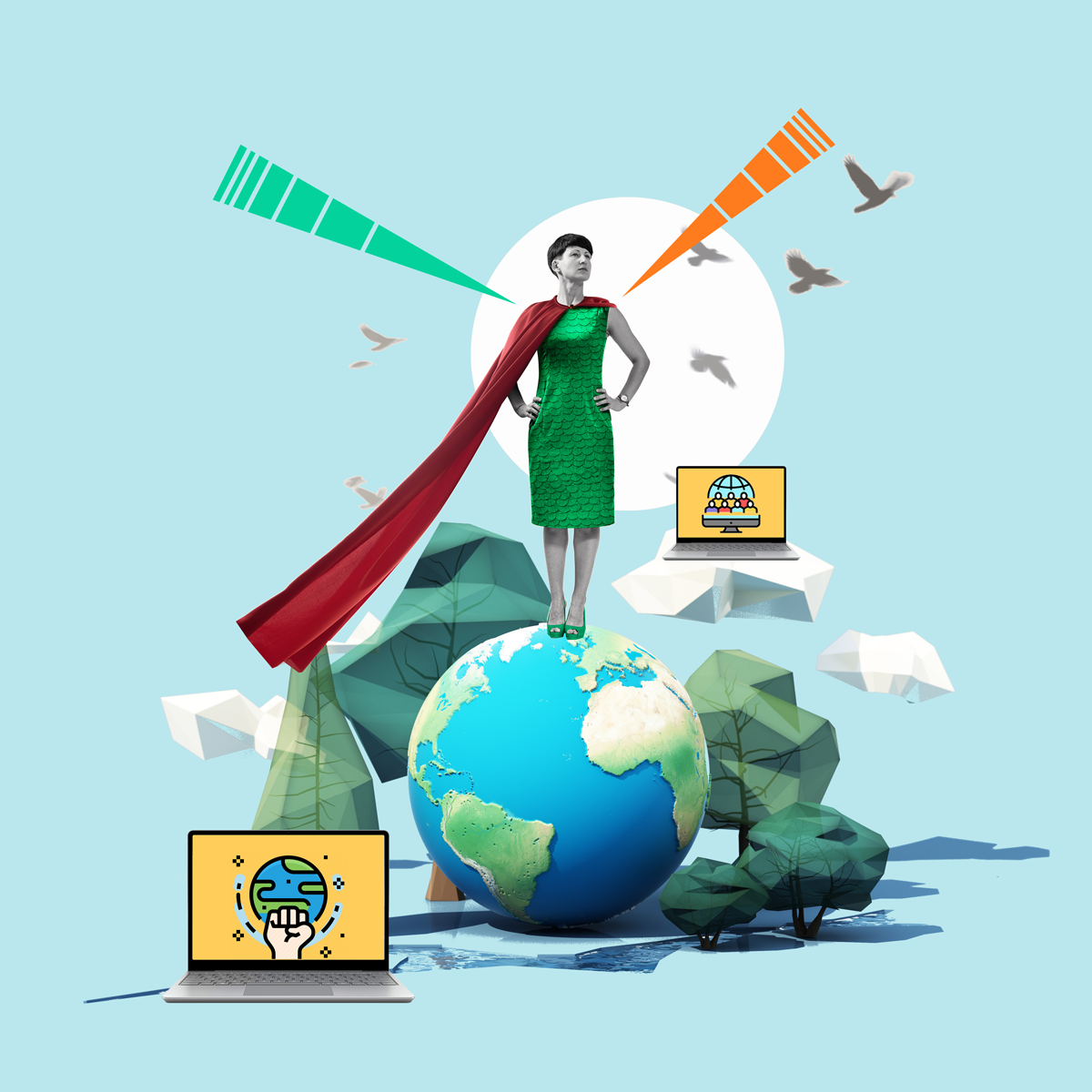
3 ways you can contribute to a more sustainable world as an IT professional
As an IT professional, you are in a unique position to help your company reduce its footprint on the environment or society. Digitization makes a lot of processes not only more efficient, but also more sustainable.
Collaborating more efficiently, reduced paper consumption, less waste… These are all benefits of the increasing automation in companies. It is therefore fair to say that IT is a crucial factor in Europe’s ambition to be climate neutral by 2050.
IT professionals have a unique opportunity to contribute to this. How? Below you discover three ways in which you can make a difference with your job in IT.
1. Optimizing energy consumption
According to figures from the European Commission, ICT today is responsible for about 7% of our global energy consumption, a share that will increase to 13% by 2030. We should not forget that many IT systems, and especially data centers, run 24/7 and therefore consume a lot of electricity. If we want to make our processes more sustainable with the help of AI and automation, we first need to ensure that IT’s own footprint remains limited.
As an IT professional, you can help your company find the most energy-efficient technology. Think of efficient equipment, such as servers and other hardware components. But also software that handles energy consumption in a much smarter way. An important part of this is the shift to the cloud. Running data and applications in the data center of a cloud provider is usually more sustainable than putting everything in your own data center. Of course, you should not migrate just about anything to the cloud, so cloud experts will have to help their organization make the right choices.
Finally, IT also produces large of volumes of waste. However, a lot of outdated hardware does not have to be thrown away. For example, in a circular economy, you can collaborate with vendors who recycle old material or give it a second life. As IT professional, you can promote partnerships in the company and encourage employees to take their responsibility.
2. Leveraging insights from data
Most companies use data to find new business opportunities. In the coming years, this data will be an important ingredient to work in a more sustainable way. Moreover, a large number of companies in the EU will soon be obliged to report on sustainability and their impact on their surroundings (both on the environment and on society). Data analysts and other IT professionals in the organization will have to provide the right data for this.
Of course, companies should do more than just reporting. More and more consumers find sustainability a key factor in their choice for a brand or company. Organizations should use the information to reduce their footprint on the planet. As a data analyst, for example, you can build predictive models that allow companies to check how their energy consumption and CO2 emissions will evolve as they develop new activities or roll out new services and products.
3. Fostering cooperation on sustainability
Saving the world all by yourself is not possible. If we really want to reduce the emissions of companies (and IT), we will need to collaborate on a global scale. IT professionals can play a role in this by sharing knowledge, for example through conferences or online communities.
When companies are part of a supply chain, the impact of a solution is spread across more than one party. Cooperation between partners and industries will be necessary to drive sustainability throughout the cycle. To build such a sustainable network, we obviously need data and real-time insights. Fujitsu is a pioneer in developing technology that extends visibility across the entire chain. As many companies will soon be required to report on this, as we mentioned above, a lot of IT professionals will turn to such tools.
In addition, technology is an important component of the United Nations’ Sustainable Development Goals – known as the SDGs. Those goals not only want to improve the environment by 2030, but also aim to generate a positive impact on challenges like poverty, hunger, gender equality, and education. Developers have an opportunity to build solutions that will make both their own company and the broader society more sustainable.
The road to a more sustainable world is one we will all have to walk together. But in a world dominated by technology, IT professionals will play a leading role in the acceleration of this process. Sustainable developments are only possible because of the resourcefulness of people. From developers to data analysts and cloud experts, your specialized IT knowledge will be required to complete this mission.
Ready to play your part and use your IT skills to build a more sustainable society? Then check out our vacancies!



